
Brewing a greener future: Mavis Bank Coffee Factory upgrades waste treatment
JAMAICAN Blue Mountain Coffee is tapping into the environmentally conscious European coffee market, resulting in a significant investment of $100 million in upgrading the Mavis Bank Coffee Factory waste treatment facility.
As the largest single location processing plant in the region, the upgraded waste treatment facility will make it the first of its kind in the Caribbean.
“We have the reputation of producing the best and finest coffee in the world. But we also want to do this with a lot of environmental context. So we want to do it in an environmentally safe way,” said Norman Grant, CEO and managing director of Mavis Bank Coffee Factory, in an interview with the Jamaica Observer.
As Jamaican coffee prepares to enter a new market, the factory is taking proactive steps to ensure its operations meet global environmental standards and is prioritising sustainability to drive growth in exports, which are increasingly dependent on production capacity. According to Grant, in order for Jamaica’s coffee to succeed in this market, the factory’s plant must be designed to respond to environmental concerns. The processing plant handles the entire coffee production process from field to box, including cherry carrying, floating, pulping, washing, drying, resting, hulling, and grading. With a workforce of around 130 workers who hand sort the coffee, the plant takes great care in its processing methods. During the pulping phase, effluence is released and needs to be treated. Grant explained that the pulp is collected and given back to farmers to use as fertiliser, while the effluent is treated using an anaerobic treatment system that includes an upflow nutrient digestor (UND) system and a facultative pond, which is currently being expanded.
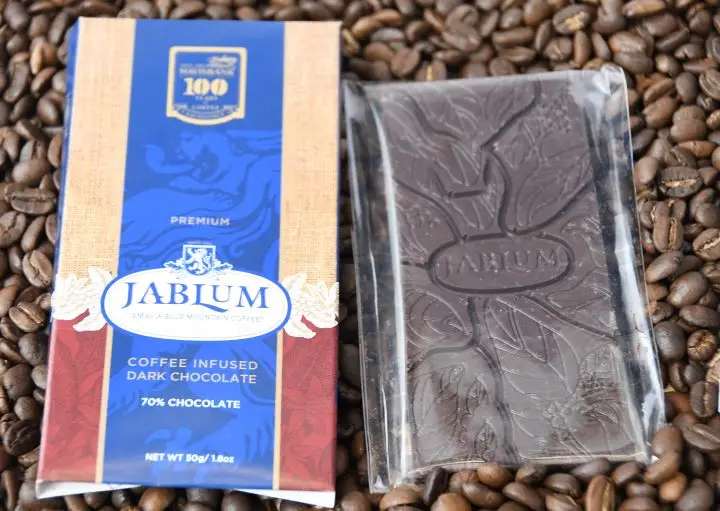
Jablum chocolate
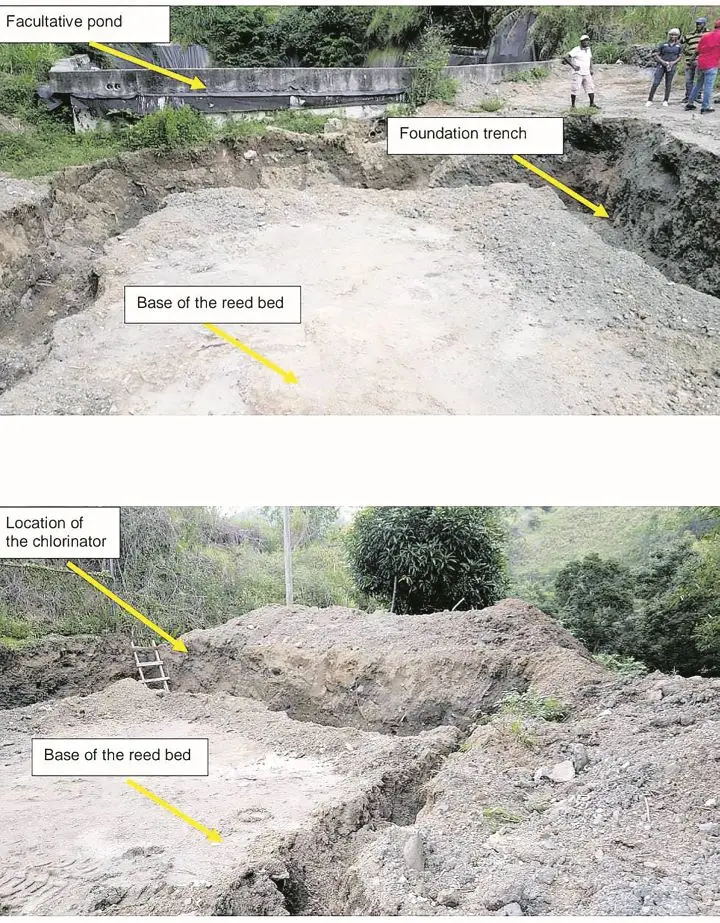
Photo showing the construction plans for the area in which the waste treatment facility will be built.
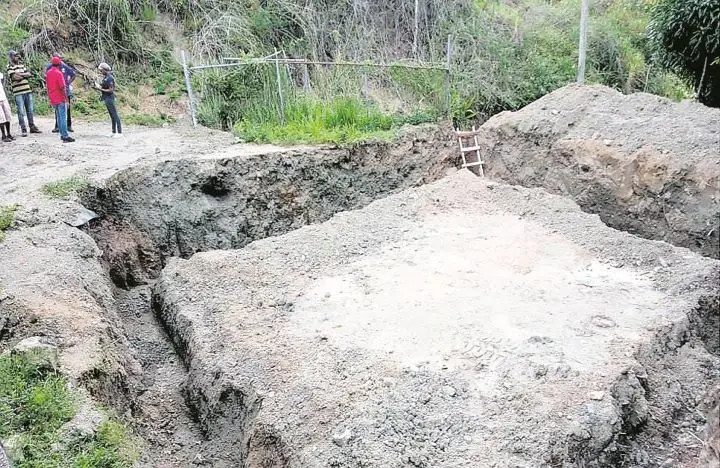
“We are expanding that system to include a reap bed, a chlorination chamber, and a soak-away chamber to ensure that the effluent meets the required standard that is outlined by NEPA,” he told the Business Observer.
Grant disclosed that the factory has secured the necessary licences from the National Environment and Planning Agency (NEPA) for its expansion project, and NEPA has provided invaluable guidance throughout the process, with the Scientific Research Council serving as the factory’s engineer, technical advisor, and programme implementer. The new addition will operate under a new licence from 2024 to 2029, with a projected completion date of July. The factory intends to conduct thorough testing of the system between October 2024 and April 2025, submitting monthly monitoring reports and samples to NEPA. Any required adjustments will be made in collaboration with NEPA and the Scientific Research Council.
“We think that the system itself will create a lot of technical [jobs]. Right now, I’m engaging the University of Technology (UTech) for either a chemical engineer or an environmental engineer of some sort because we want to do a number of samplings and see how we can fine-tune those results, but the addition of that system should have, maybe, at least another five new jobs, including technical personnel,” he shared when asked about the potential for job creation.
This initiative also fulfils Mavis Bank’s corporate social responsibility to support community projects. Additionally, the company is in discussions with the university to host research students at Mavis Bank, providing them with hands-on experience to explore the system’s inner workings and apply theoretical knowledge in engineering, chemistry, or environmental studies.
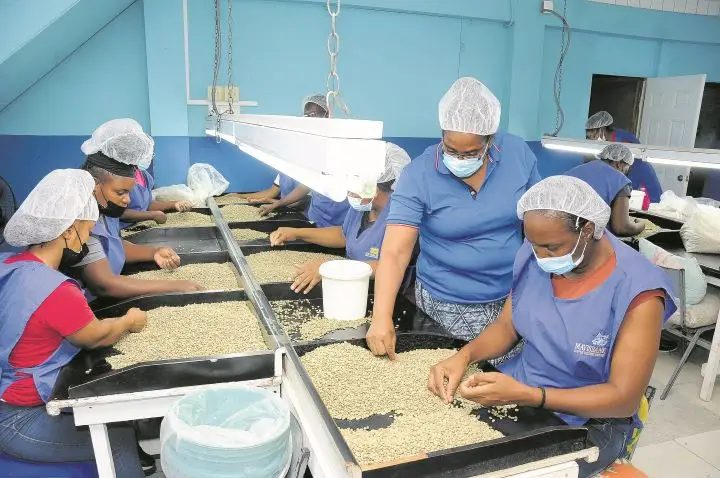
Factory workers at the Mavis Bank Coffee Factory who hand-sort the coffee
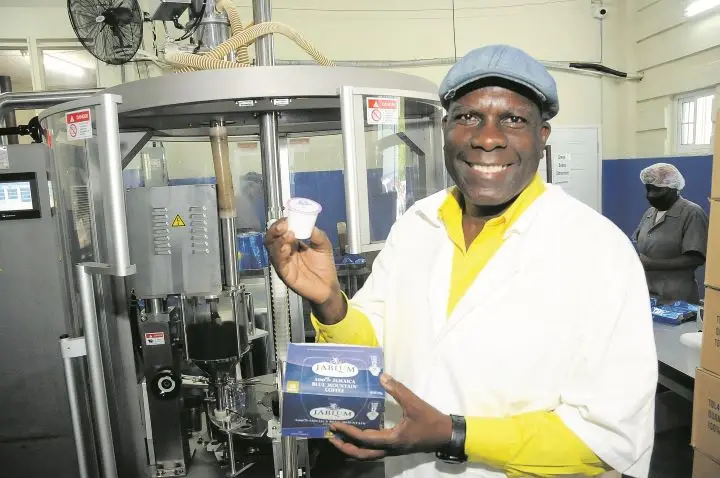
Norman Grant, CEO and Managing Director of Mavis Bank Coffee Factory
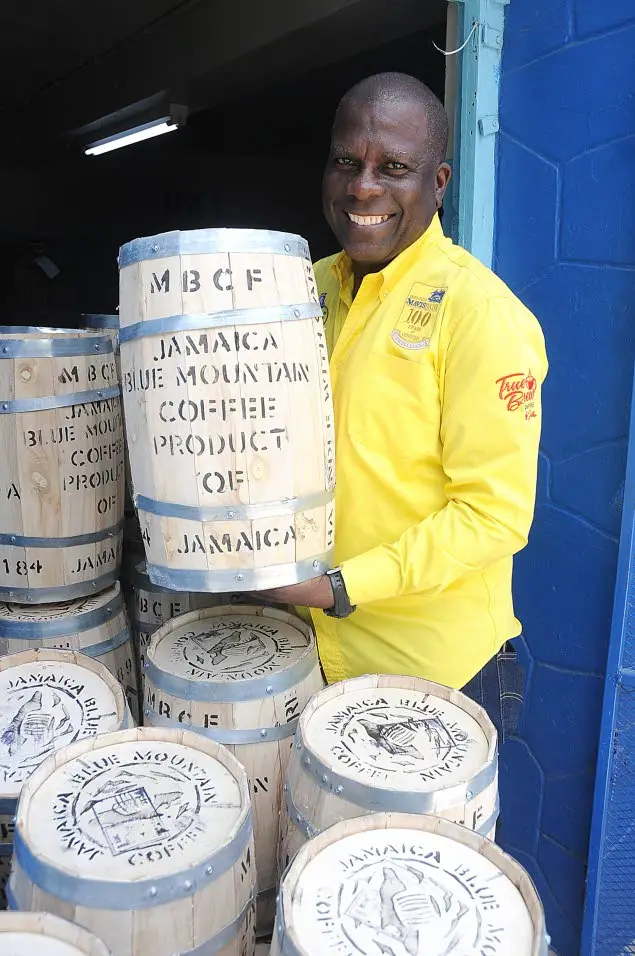
GRANT…we are expanding that system to include a reap bed, a chlorination chamber, and a soak-away chamber to ensure that the effluent meets the required standard that is outlined by NEPA..
Jamaica recently began exporting coffee to Italy, joining its main export markets of Japan, the United States, Switzerland, China, and Belgium. In 2022, Jamaica exported $26.2 million worth of coffee, making it the 62nd largest exporter of coffee in the world. The goal is to ensure that Jamaica’s coffee production process meets international standards, further expanding its global reach.
“The team at Mavis Bank is very excited about this project because we know that it is going to be a game changer, not only for the industry but also for other stakeholders in the productive sector,” said Grant.
As part of its centennial celebrations, Mavis Bank Coffee Factory has unveiled two exciting new products: the Jablum Blue Mountain Coffee Rum Cake and the Jablum Blue Mountain Rum Kit. Additionally, the company has launched Jablum chocolates and opened five coffee shops under the Jablum brand, significantly expanding its local market presence. This strategic move aims to ensure the long-term sustainability of Jamaica Blue Mountain Coffee, supporting over 5,000 coffee farmers and 102,000 farm families.
























